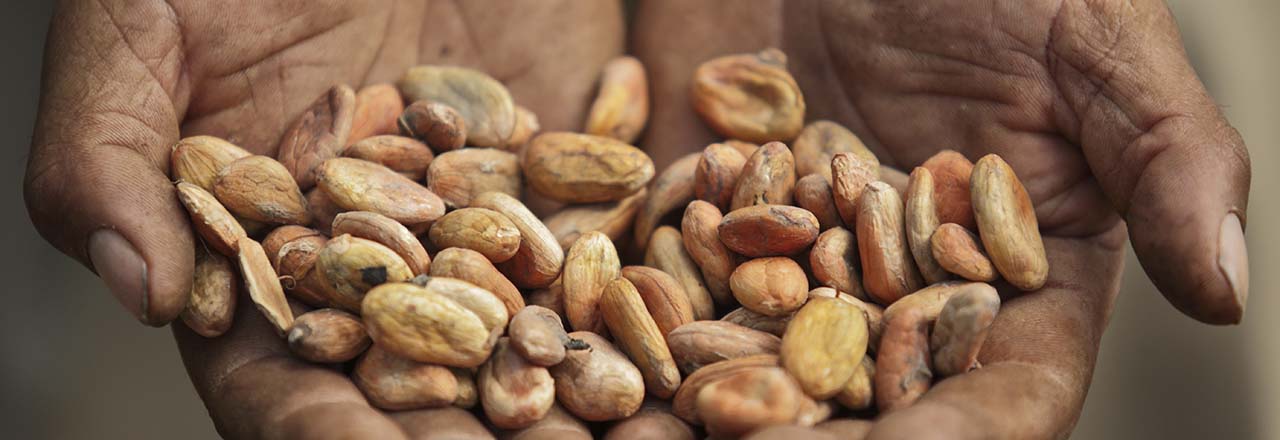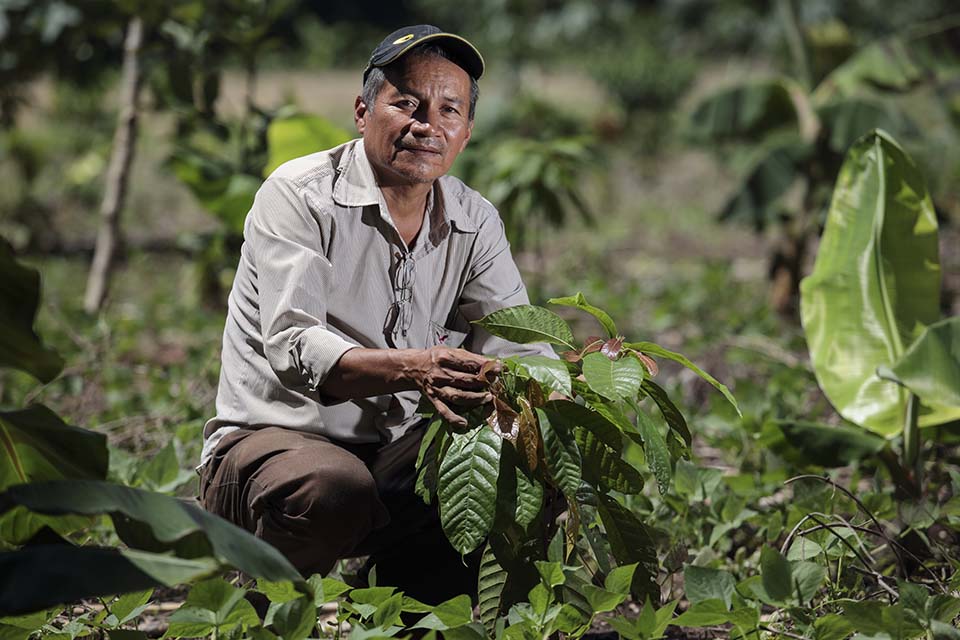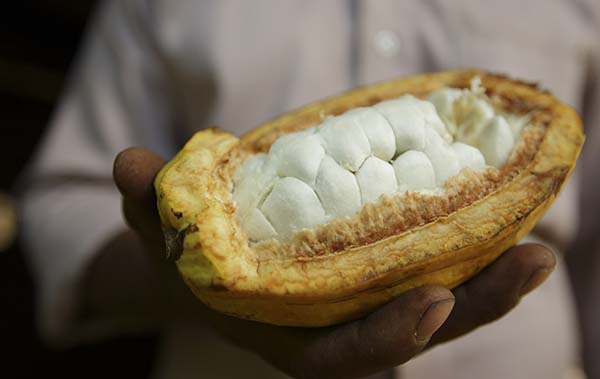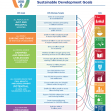

El Salvador Grows Chocolate
Featured Project
El Salvador National Cacao Alliance
2014-2019
The El Salvador Cacao Alliance is transforming the country into a recognized producer of high-quality, fine-flavor cacao for domestic and international markets.
Goals and Benefits
- Return high-quality, high-value cacao to El Salvador
- Reach more than 6,500 producers
- Plant 16,000 acres
- Create 13,500 jobs
- Address deforestation, soil and water degradation
- Reduce rates of unemployment and emigration
- Establish agroforestry systems that intercrop staple crops, fruit trees and hardwoods
- Diversify and increase farm income short- and long-term
- Establish a national extension service
The El Salvador Cacao Alliance seeks to re-establish El Salvador as a major source of high quality cacao.

Simón Pérez shows newly planted cocoa trees in San Julian, Sonsonate, El Salvador. The Cacao Alliance will reach 10,000 producers and establishment agro-forestry systems that will increase family income, protect the environment and create jobs in the area. Photo by Oscar Leiva/Silverlight for CRS
By equipping farmers with the knowledge needed to grow and process cacao—a more profitable crop than the staple grains and sugar cane they currently plant—and linking them to technical and financial services, and markets, the El Salvador Cacao Alliance is transforming the country into a recognized producer of high-quality, fine-flavor cacao for domestic and international markets. In the process, the alliance, a partnership among private companies, government institutions, research organizations and academic institutions, is helping to boost rural incomes while restoring deforested areas and improving soil quality.

An cacao pod opened to reveal the raw material of fine chocolate. Photo by Oscar Leiva/Silverlight for CRS
The Alliance is helping to create a national extension service, a network of agricultural expert trainers, thereby boosting the government’s capacity to support the growing number of cacao producers in the country.
It will help small-scale farmers gain access to financial services, establish post-harvest handling and processing facilities to add value to cacao and other crops and, through the implementation of agroforestry systems, adopt environmentally sustainable farming practices that include soil and water conservation.
Guided by a high-level advisory board, the alliance is also helping to build supportive public policy for cacao production and promote trade, research, agricultural technologies and climate change adaptability.
The ultimate goal is to drive research and development toward long-term sustainability for the cacao value chain, making it a flagship product and an engine for rural development in El Salvador.
The winner of El Salvador’s first ever Cacao of Excellence competition in 2018 was recognized in France as having one of the best 18 cacaos in the world.




